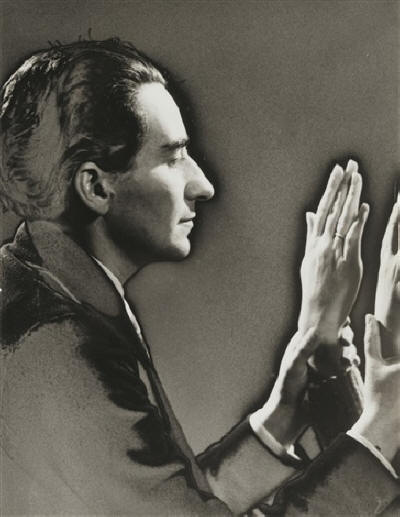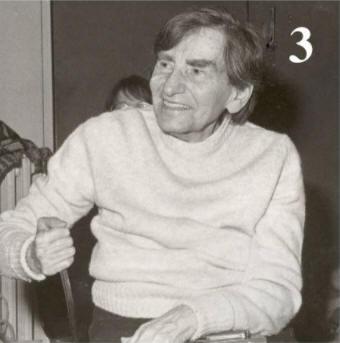

Queer Places:
83110 Sanary-sur-Mer, France
 Charlotte
Wolff (30 September 1897 – 12 September 1986) was a German-British physician
who worked as a psychotherapist and wrote on sexology and hand analysis. Her
writings on lesbianism and bisexuality were influential early works in the
field. In 1933 she fled Nazi Germany to Paris, and then to London, where she lived the rest of her life (with a brief return to Germany in the late 1970s). Her first publications dealt with cheirology (the study of the hand), but in the late 60s she turned to the study of sexuality, and began a series of in-depth interviews with lesbians and bisexual women that resulted in her groundbreaking study Love Between Women (1971), followed by Bisexuality (1977).
Charlotte
Wolff (30 September 1897 – 12 September 1986) was a German-British physician
who worked as a psychotherapist and wrote on sexology and hand analysis. Her
writings on lesbianism and bisexuality were influential early works in the
field. In 1933 she fled Nazi Germany to Paris, and then to London, where she lived the rest of her life (with a brief return to Germany in the late 1970s). Her first publications dealt with cheirology (the study of the hand), but in the late 60s she turned to the study of sexuality, and began a series of in-depth interviews with lesbians and bisexual women that resulted in her groundbreaking study Love Between Women (1971), followed by Bisexuality (1977).
Charlotte Wolff was born in Riesenburg, West Prussia (now Prabuty, Poland) into a liberal middle-class Jewish family. She was educated in Danzig (now Gdańsk) and at the Viktoria Schule, a Realgymnasium (girls' academic secondary school) in Dresden. In 1920 she entered the University of Freiburg to study literature and philosophy; at the time she was writing poetry, some of which she published. She changed her academic focus to medicine and after further study at Königsberg (now Kaliningrad, Russia) and Tübingen, completed a degree as a physician at Berlin in 1926.[1] Remaining in Berlin, she did her internship treating prostitutes at the Rudolf Virchow Hospital, then in addition to private practice as a physician and psychotherapist, worked in clinics in working-class districts and did voluntary work in family planning.[1][2] She became deputy director for pre-natal services and in 1932, director of the Institute for Electro-physical Therapy at the Neukölln clinic.[1]

Looking back in 1976, Charlotte Wolff remembered the atmosphere of Berlin in the 1920s as having no boundaries: ‘All the men came to these clubs and they loved lesbians. No nonsense. There were also masked balls at the Academy of Arts. I danced with women, I danced with men. We didn’t think anything about it. You loved somebody or you loved nobody but you looked upon everything with delight.’
As a Jew, she could no longer work after the Nazis came to power and emigrated to France, where she lived with friends in Paris and the artist's community of Sanary-sur-Mer.[1] Forbidden to practise medicine there, she made a living from hand analysis.[2] In 1936 she emigrated again to England, where she lived for the rest of her life, becoming a permanent resident in 1937 and taking British citizenship in 1947. She conducted psychological research at the Jewish Child Guidance Clinic and University College London, and was able to practise as a psychotherapist, becoming a Fellow of the British Psychological Society in 1941, but not again as a physician until 1952.[1] During World War II, she worked in hospitals and mental institutions while continuing to publish her research.
Wolff was an active lesbian as early as her student days;[2][3] in Berlin she had an "Aryan" partner who left her for fear of the Nazis.[1] In the 1970s, translations of her books led German lesbians to seek her out and invite her to speak in Germany.[1]
In Germany, she was not a member of a political party but joined the Association of Socialist Physicians (Verein Sozialistischer Ärzten) and sympathised with the Independent Social Democrats.[1] She was not a Zionist nor yet a believing or practising Jew, but resisted conversion to Christianity by one of her many Quaker friends, and identified herself as "an international Jew with a British passport".[1] She died in London.
My published books: